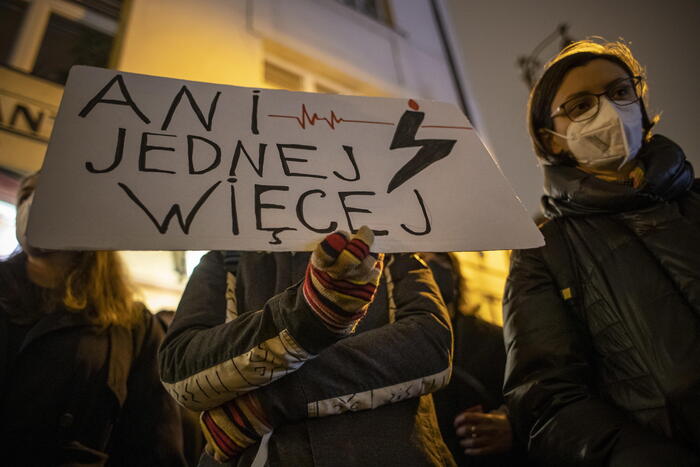United Kingdom and Gibraltar European Union membership referendum
all articles
In the end, it was probably the growing willingness of the British to hold swiftly new elections: the other 27 EU members have accepted London's request to postpone Brexit from 31 October to 31 January - at the latest. Should the British Parliament ratify the exit agreement with the EU beforehand, it should also be possible to leave earlier. "Flextension" is the name of the Diplomatsprech, an artificial word from "flexible" and "extension".
Formally, the extension is not yet sure. First Britain has to agree, then the 27 remaining EU countries have 24 hours to approve the extension by written procedure. Although no one expects any further problems in Brussels, the extension may officially be announced only on Wednesday, just one day before the Brexit deadline. So a little bit of drama stays.
Council President Tusk announced agreement on Twitter
The ambassadors also urged the British to abide by the EU's rules of the game until they leave the country. Since the British are now likely to be a member of the EU at the beginning of December planned launch of the new EU Commission of Ursula von der Leyen, they are obliged to appoint an EU Commissioner, even if only for a few weeks. Premier Johnson had always refused. "The UK will remain an EU member until it comes - with all the rights and responsibilities," says an EU diplomat. This includes nominating an EU commissioner for the new commission.
But compared to the back and forth of the past few days, the agreement came quickly in the end. When EU Council President Donald Tusk announced it via Twitter, the ambassadors of the member states sat together for just half an hour. This was possible because French President Emmanuel Macron had given up his opposition to the extension until 31 January.
The EU27 has agreed that it will accept the UK's request for a #Brexit flextension until 31 January 2020. The decision is to be formalized by a written procedure.
- Donald Tusk (@eucopresident) 28 October 2019Macron had argued for giving the British only a short reprieve, as he did in the April debate. Had it only been extended at that time for a few weeks instead of the end of October, the message of the Élysée of the past few days, the British would have long been out of the EU.
Chance of quick re-election enabled agreement
But now the French have given up their resistance again - probably also, in order not to stand in isolation again after the anger at the failed accession negotiations in northern Macedonia and Albania. Practically all other EU countries favored the extension until January 31, just to avoid the impression of interfering with British domestic politics. The date had chosen the British themselves: It is in the law by which the London House of Commons had forced Prime Minister Boris Johnson to ask the EU for an extension.
Now Brexit postponement number three. The way for it, so to speak in Brussels, should have paved many phone calls between the capitals, including apparently between Macron and Johnson. "After constructive talks over the weekend, the ambassadors had a quick and constructive talk about a Brexit extension until 31 January," says an EU diplomat.
The main reason for Macron's intervention may be that the chance of a quick new election in the UK has increased over the weekend. While Johnson presses for December 12 as an election date, two opposition parties - the Liberal Democrats and the Scottish National Party - want to vote already on 9 December. France had always emphasized that an extension of the Brexit deadline was subject to strict conditions, such as the holding of new elections or a second referendum.
Labor leader Jeremy Corbyn is now under pressure with the Brexit extension. The head of the largest opposition party had rejected new elections so far, as long as the no-deal Brexit was off the table. That's it - at least until the end of January.
Does the Brexit drama go on forever?
But whether new elections bring more clarity into British domestic politics? "The number of people hoping for that is far greater than the number of people who really believe it," says a Brussels diplomat. In 2017, Johnson's predecessor, Theresa May, believed he could win new elections and then prevail. But then May lost the absolute majority with the Tories, which contributed not insignificantly to today's Brexit chaos.
Johnson now apparently believes that he can do better. "We hope that the British will use the time gained now wisely," says an EU diplomat. But if Johnson does not provide for clear majority and bring the withdrawal contract by 31 January through Parliament, the EU would probably extension number four in the house. The alternative would be to reject the next request from the British. "But probably no one in the other 27 EU countries has the courage," says a diplomat, "even if all are annoyed." The European election in May 2019 was perhaps the last chance to draw a clear line. "Now it will probably be extended so often, until the British finally agree."
Meanwhile, the desire for Britain to decide to stay in the EU seems almost completely gone with the other EU governments. "Nobody likes Boris Johnson," says the diplomat. "The fact that the rest of the EU now sees him as an ally to finally get Britain out of the EU says it all."





/cloudfront-eu-central-1.images.arcpublishing.com/prisa/W7LXNNLUAS4RTRH4YTRS7U3MAU.jpg)



